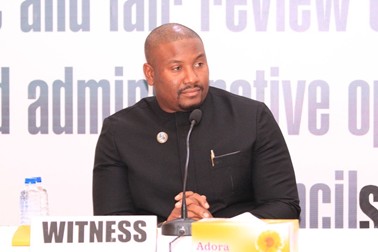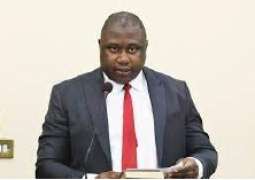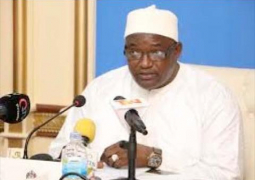
At the center of the testimony was the decision to change signatories on council bank accounts during a period when the council lacked substantive leadership in both the Chief Executive Officer and Director of Finance positions. It was revealed that the Deputy CEO and the Acting Director of Finance had written to the bank to alter the signatories, despite the provisions of the Local Government Finance and Audit Act of 2004. The Act states clearly that the CEO and the Director of Finance are the mandated signatories, with the Director of Administration serving as an alternative in their absence.
Counsel pressed the witness, noting that the law provided no room for deputies to assume such authority. Bensouda, however, argued that deputies naturally act in the place of their superiors when those offices are vacant. “The law is very clear and very explicit,” counsel replied, insisting that expanding signature authority beyond the stipulated officers was improper.
The dispute grew more complex when the role of donors was examined. Donor-funded projects, such as the European Union’s Kanifing Environmental Transformation Program (KEPT), often require project directors and managers to be co-signatories of accounts.
According to Mayor Bensouda, the arrangement had been discussed and adopted by the council, but counsel pointed out that the law makes no exception for donor accounts. “All accounts of council” fall under the same legal framework, counsel stressed, adding that even grants and project funds are classified as council revenues.
Mayor Bensouda maintained that the rigidity of the law sometimes clashes with the conditions imposed by international donors, forcing the council into “grey areas” where, in his words, “the greater good is that these projects are implemented.” Counsel pushed back, arguing that if donor demands contravene Gambian law, the law must prevail.
The inquiry then shifted to the case of former CEO Sainabou Martin Sonko, who was sent on administrative leave by the council in 2021 following allegations of fraud. The council justified its decision under Section 43 of the Local Government Act, which places the CEO under the direction and control of the council. Counsel, however, argued that disciplinary authority rests solely with the Local Government Service Commission.
The Service Commission, which had been rendered ineffective at the time due to interference by the Ministry of Lands, did not respond to the council’s correspondence until 2023. In the meantime, the matter was taken to court, and Sonko was eventually reinstated after an injunction was lifted. Yet her return triggered fresh unrest, with staff reportedly unwilling to work with her, leading to what witnesses described as another “fracas” within the institution. The witness explained.
Counsel questioned whether the council’s reliance on Section 43 to justify the administrative leave was sound. “That would be a gross interpretation,” counsel held, noting that the law provides specific provisions on appointments and disciplinary measures through the Service Commission. Bensouda defended the council’s actions, stating they were acting in good faith on legal advice. “We can direct the CEO to go on administrative leave,” he said, “because she is under our direction and control.” The commission was reminded, however, that in legal matters, specific provisions prevail over general ones, and the council may have exceeded its powers.
The issue of authority also touched on the appointment of deputies. Kajali Jange, who was Deputy CEO, and Sheriff Njie, who served as Acting Finance Director, to assume the roles of CEO and Finance Director during a crisis at the council. Counsel questioned whether the council had the legal authority to elevate them without Service Commission approval. The witness cited council resolutions and the council’s autonomy, but counsel stressed that appointments and promotions remain the prerogative of the Service Commission.
The hearings took another turn when testimony delved into bribery allegations against former Deputy Mayor Pa Musa Bah. The commission heard that Bah had allegedly solicited a bribe of D400,000 from Ecotech, a company partnered with KMC. An audio recording was produced, allegedly capturing him demanding the payment. Upon hearing of the incident, the Mayor called a meeting, during which the audio was played. Bah denied the allegation, claiming the audio had been AI-generated, and later resigned from his role as Deputy Mayor, though he retained his position as a councillor.
Counsel questioned why the council had acted swiftly in suspending CEO Sonko but failed to take similar steps against Bah. Mayor Bensouda explained that Bah, as an elected official, was not subject to the Service Commission’s authority, making his case more complex. The Ministry took charge of the investigation but concluded that there was no cooperative witness testimony to substantiate the allegations. Counsel, however, argued that given the existence of an audio recording, the matter should have been referred to the police under the Local Government Act, which addresses fraud and dishonesty by elected officials. The witness responded that previous cases reported to the police were often referred back to the council, leaving them in a stalemate.
This inconsistency prompted counsel to remark that KMC “always fought back” when the Ministry interfered in other cases, but in Bah’s case, the council deferred to the Ministry’s findings. The witness insisted that the two cases were different: Sonko admitted to some actions, while Bah denied all wrongdoing and the Ministry said there was no evidence.
Chairperson Jainaba Bah also raised questions about financial management and project implementation.
Testimony confirmed that no feasibility studies or due diligence assessments were conducted before embarking on major projects and loans, including contracts with Espace Motors and Ecotech. In one instance, minutes of a council meeting recorded a resolution to provide D1 million in start-up loans to wards, but the budget later reflected D1.5 million, with no clear explanation for the change. Payments for loan servicing also appeared to have been charged to waste management assets without proper supplementary budgets.
At the heart of the hearings was the tension between law and practice. While KMC insisted it acted within its authority to ensure the council continued to function during crises, counsel repeatedly pointed out that the law left no room for improvisation. The Supreme Court ruling in KMC v. Minister of Lands was cited, which criticised the Ministry for interference but reaffirmed the Service Commission’s exclusive authority over appointments and disciplinary matters.
Read Other Articles In Headlines

Madi applauds IEC for 'diligent, efficient' work in the 'smooth' voter registration
Jun 11, 2021, 5:23 PM




